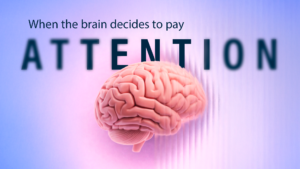
How to Give a Great Presentation? Imagine you’re in a team meeting. The room is full, and as you wait for your turn to speak, you watch your colleagues flip through their notes or stare at their phone screens. Finally, it’s your moment to present. You’ve spent hours preparing your proposal, you know it’s a good idea and could take the company to the next level, but you notice that as soon as you start talking, people start looking away. You feel like your words are dispersing into thin air and getting lost in the room’s murmur. The proposal doesn’t make the expected impact, and you leave the meeting feeling like, once again, your potential has gone unnoticed.
This scenario, while frustrating, is common for those who haven’t developed the necessary presentation skills to effectively convey their ideas. In a highly competitive environment, communicating clearly and confidently is essential for advancing your career and obtaining leadership opportunities, and neuroscience research confirms this¹.
The Science Behind the Power of Effective Communication
Neuroscience explains that the human brain responds more intensely to a clear and emotional narrative. When ideas are presented with a structure and emotional connection, people not only understand them better but also remember them and are more likely to act on them¹. A study by García-Ros (2017) demonstrated that students who used a presentation skills assessment tool achieved a 15% better understanding of the evaluation criteria, which helped them structure their projects better and present them in a clearer and more convincing manner¹. This same study indicated that those who scored high on presentation skills had a 20% higher probability of accessing leadership positions in their first jobs, compared to those who did not develop these skills¹.
How Effective Communication Drives Professional Success Another relevant finding from the research is that 87% of the students surveyed considered the assessment tool a valuable tool for better understanding presentation criteria and improving their project planning². That is, when we understand the fundamental aspects of an effective presentation, we structure our ideas better and increase the impact of our message. In the workplace, presentation skills are associated with a 25% higher probability of successfully completing assigned projects, which builds trust and demonstrates competence in the professional environment². Sepúlveda’s study (2020) also shows that transformational leaders, characterized by their ability to inspire through communication, achieve a 30% higher level of commitment from their teams³. This type of leadership not only strengthens team cohesion but also drives overall performance, allowing organizational goals to be achieved more efficiently. These leaders have an 18% higher probability of receiving positive performance evaluations, which increases the chances of promotion and recognition³.
Strategies to Develop Your Presentation Skills
So, how can you start improving your presentations to stand out in your professional environment and How to give a great presentation? Here are some key steps:
- Define the objective of your presentation: Before starting, identify the central purpose of your message. A clear goal helps you focus and avoid unnecessary information, which improves the clarity of your presentation. This is the first tip to know how to give a great presentation.
- Structure your presentation as a narrative: The brain responds better to a story. Make sure your presentation has a strong beginning, a solid development, and an ending that calls to action. This can increase information retention in your audience by up to 70%.
- Connect emotionally with your audience: Use real examples or cases that appeal to the human experience. Emotions create a lasting impression in the audience’s mind and enhance your image as a leader³.
- Seek and evaluate feedback: Feedback is key to improving your skills. Those who learn from their experiences and refine their approach have a clear competitive advantage².
- Practice self-confidence: An effective presentation depends largely on how you project your confidence. Practice regularly and familiarize yourself with the material to increase your security.
Investing in Your Presentation Skills is Investing in Your Future The ability to present is more than just communicating: it is a strategic tool for professional advancement. Communicating clearly and confidently not only helps you be better valued in your current role but also opens doors to leadership roles and new growth opportunities. Every time you present, you are showcasing your potential and setting the course for your future. Now you can know how to give a great presentation.
References García-Ros R. Análisis y validación de un instrumento para medir habilidades de presentación oral en contextos universitarios. Electronic Journal of Research in Educational Psychology. 2017;9:1043-62. García Ros R. Análisis y validación de un instrumento para medir habilidades de presentación oral en contextos universitarios. Electronic Journal of Research in Educational Psychology. 2011;9:1043-62. Sepúlveda MC. Los estilos de liderazgo transformacional y transaccional, y su impacto en el desempeño laboral. Revista Psicología y Empresa. 2020;12:89-105.
Do you know how to Give a Great Presentation? Learn more in our free masterclass on our YouTube channel @NeurobusinessAcademy or dive deeper with the complete course on Hotmart. Activate the TOPBLACK coupon and get a 79% discount this BLACK NOVEMBER. Activate your discount now ➡️ ➡️ https://pay.hotmart.com/M91071302X?off=za5210ks
Continue reading more articles: https://neurobusiness.us/blog/


